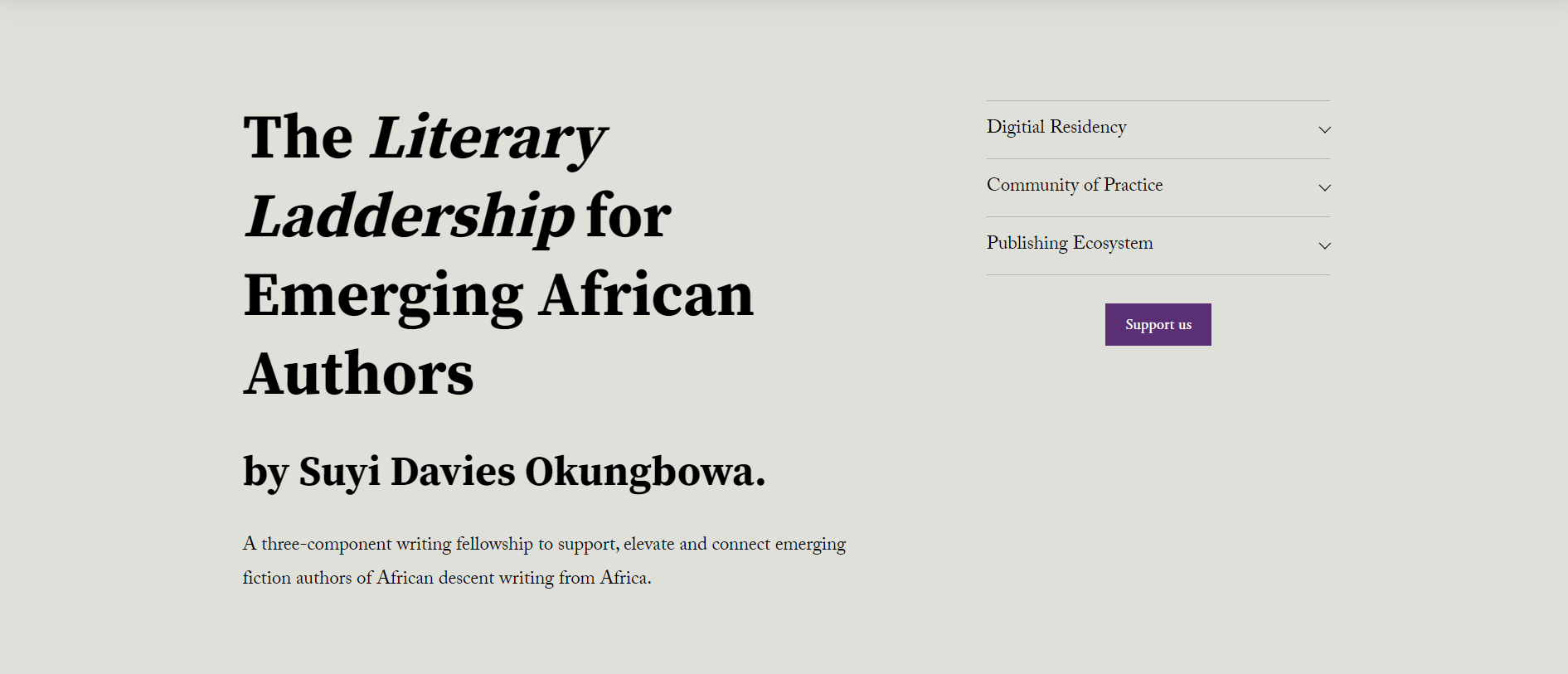Building a Raft
Back in 2016, I came across a seemingly ordinary young woman who’d recently moved from Lagos to Bristol. She’d decided to start a writers’ fund in her grandparents' name. Small change, it seemed like at the time: £160, which came to about N70,000. From the way she described it, she wanted to fund serious, emerging writers who didn't have enough money to buy a laptop. In her mind, perhaps if they could buy a used laptop to write (in Lagos, this cost about N70k at the time), they could get rolling.
At the time, I was working 5-to-9 and earning circa N92,000 monthly. Though I had my employer’s laptop to write, I needed something else: a month of unpaid leave to finish this little novella (later turned novel) that had been gnawing at my brain for over a year. All I needed was one month away and some income to cover the bills.
So I applied for this young woman’s writers’ fund—and got it.
Fast-forward to 2018, and that novella-turned-novel became my debut, David Mogo, Godhunter. It was also the moment I realized that perhaps I wasn't so bad at this writing thing. This was a time when energetic and not-so-privileged storytellers living on the African continent—and their stories, especially those of the speculative variety—weren't as prized in the global sphere as they are starting to be now. Completing the novella in that 1 month gave me the jolt I needed to think bigger. I began to seek free and paid remote writing workshops. I submitted to magazines, published a few stories. I got a bursary to attend Milford, where I first learned about fully-funded MFAs in Creative Writing (two of the workshop attendees ended up being references for my application). I spent a year on MFA applications, got into 2 out of 9 schools, spent 3 years in writing workshops, sold a trilogy, became a professor.
This might sound like a pretty sweet grass-to-grace origin story, but I actually like to think that HUUUGE luck aside, the socioeconomic barriers to my upswing weren't that high. I know talented writers who have it much worse than I did—who do not have jobs, decent electricity or laptops. When they quit writing, it is not because they don't love to tell stories, but because survival is a more pressing need. And it is for them that I have started this fellowship.
The Literary Laddership for Emerging African Authors aims to support, elevate and connect emerging fiction authors of Black and/or African descent, based primarily on the African continent and writing in English. Fellows will be offered a funded ($500 each) three-month digital residency, membership in a private community of practice, and continuous support through the publishing ecosystem.
Why Laddership? Well, this expression is my attempt to combine the ethos of two terms: “ladder” and “fellowship”. Fellowships are an established approach to funding artists and creators globally, with the aim of buying them time and space to create, as well as fold them into a community of learning and practice. This program is based on the writing fellowship model, but with one marked difference: my team and I are invested in the continuous act of “sending the ladder down.” We retain an awareness of the privileges and inequities resident in communities built on traditional institutions like publishing. The literary “laddership” is our way of paying attention to these inequities and designing a system to alleviate them.
$500 is not a groundbreaking or life-changing sum. I don’t plan for it to be. This is why, after extensive discussions with friends, colleagues and peers who live on the continent, I have also infused other aspects of the fellowship that intend to address non-monetary pain points, including ongoing education on the publishing side of things and the pathway to becoming a professional author.
My hope is that this fellowship, more than anything, can be a jolt for others like that admirable young woman’s £160 did for me. For emerging African writers most invested in building a career out of telling stories, I am hoping to be a raft, aiding in their conveyance from one end of the murky writing and publishing waters to the other.
What can you do to help? For starters, you can support us. This may mean sharing this post, or sending the fellowship link to folks you think qualify, or buying us a coffee (see below). Perhaps featuring this on your newsletter or blog or something, helping us get the word out. It may mean simply nodding approvingly from the sidelines. Either way, you’re doing something, and I appreciate you, because that’s better than nothing.
I don't have a grandiose plan to save or fix the world. I don't even know how long this fellowship will last—the previously mentioned writers’ fund that jolted me lasted only two-ish years! But I do know this: I have built a raft. Now, we follow the winds and learn how to sail as we go.
The Literary Laddership for Emerging African Authors is now open for applications as of today. The deadline for applications is Tuesday 31 May 2022 @ 11:59PM EST. Afterward, an anonymous reading/judging period will commence, and winners will be announced before June 30, 2022. The first cohort's digital residency (and simultaneous community of practice) will run from September to November 2022.
If you wish to support this venture, we encourage you to do so! All such support will go to increasing the amount each new fellowship cohort receives, sponsoring their attendance of conferences and workshops, and managing and maintaining the community of practice.
